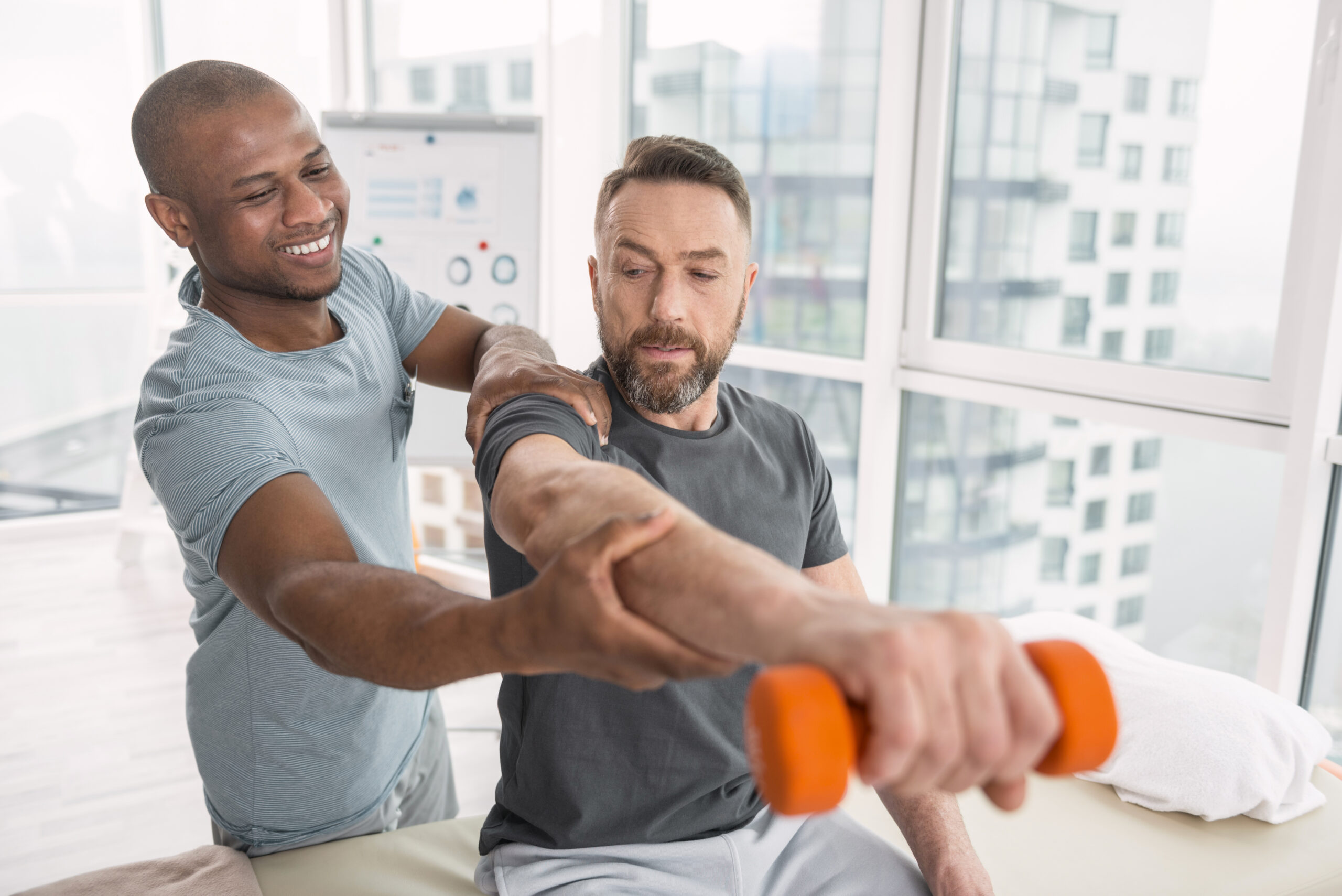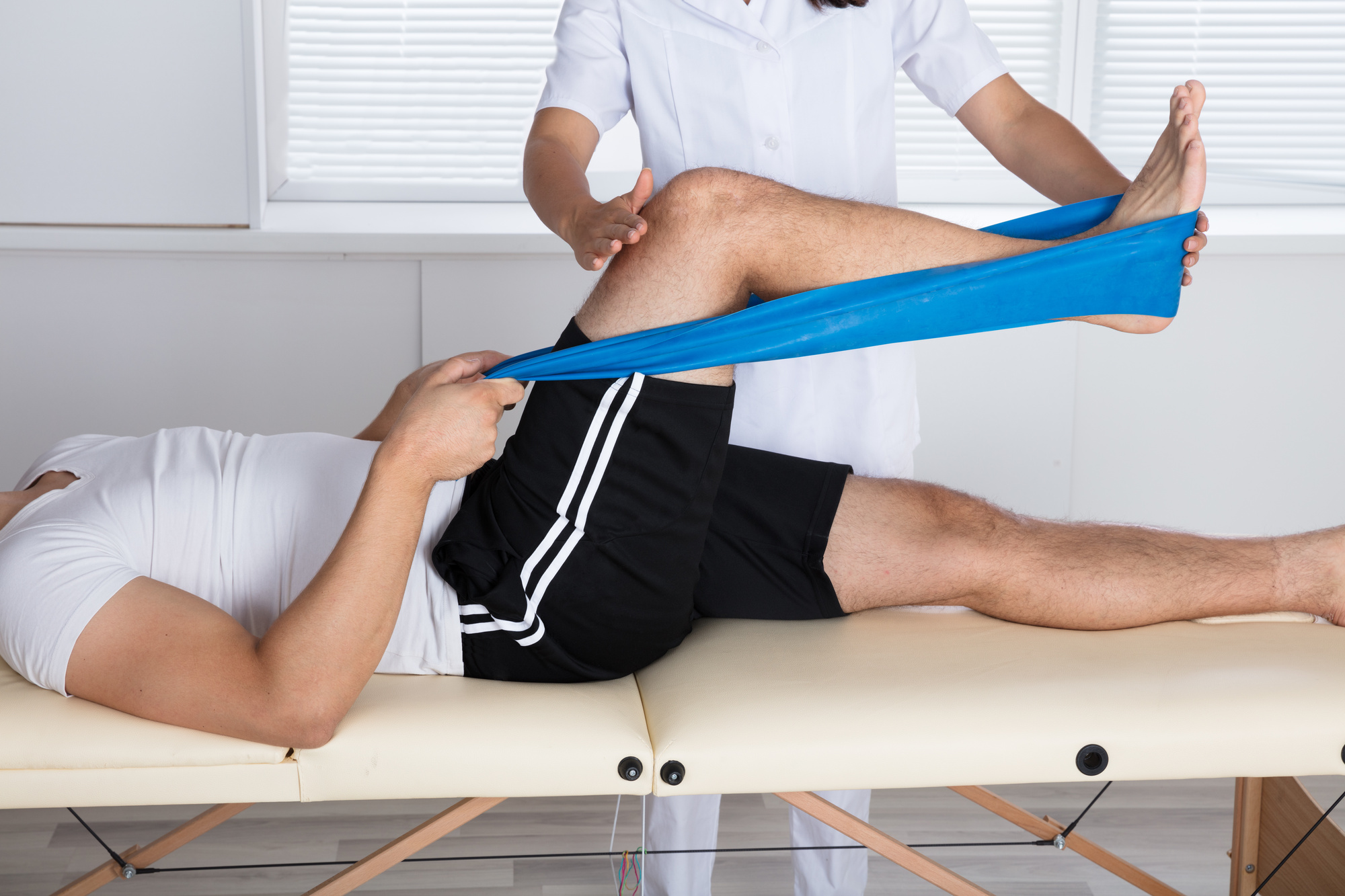Understanding the Function of Physical Therapists in Sports Medicine
Recognizing the role of physiotherapists in sports medicine is crucial for athletes and medical care professionals alike. Physiotherapists play an essential role in examining professional athletes' conditions and injuries, establishing personalized treatment plans, and applying rehabilitation techniques. Their experience extends beyond injury healing, as they additionally concentrate on enhancing performance and stopping future injuries. Teaming up with medical care professionals and coaches, physiotherapists supply thorough like professional athletes, guaranteeing their overall well-being and optimal performance. With their comprehensive understanding and abilities, physical specialists are necessary members of the sports medicine team, working towards the common goal of keeping professional athletes healthy and balanced and aiding them reach their complete possibility. This write-up intends to lose light on the vital duty that physical specialists play in sporting activities medication, highlighting their contributions to the field.
Evaluating Professional athlete's Injuries and Conditions
1. Physical therapists in sporting activities medication play an important role in reviewing professional athletes' problems and injuries. The capacity to precisely assess a professional athlete's injury is crucial in identifying the ideal program of therapy and rehab. Through a detailed assessment procedure, physical therapists have the ability to determine the details nature and degree of an injury, along with any type of hidden elements that might have added to its event.
Throughout the evaluation, physical specialists gather vital information such as the professional athlete's medical history, previous injuries, and existing symptoms. They likewise perform a thorough checkup, assessing elements such as series of activity, flexibility, stability, and stamina. Special diagnostic tests and imaging may also be used to additional examine the injury or problem.
By performing this detailed analysis, physical therapists are able to accurately diagnose the injury and develop an individualized therapy strategy. This might consist of restorative workouts, hands-on therapy techniques, and modalities such as heat or cold treatment. In addition, physiotherapists supply education and learning and support on appropriate techniques for avoiding future injuries, in addition to techniques for optimizing efficiency and decreasing the threat of re-injury.
Creating Individualized Therapy Plans
Physiotherapists in sports medicine develop personalized therapy strategies based on their thorough assessment of an athlete's problems and injuries. This process involves a thorough understanding of the professional athlete's medical history, checkup, and analysis tests. By collecting this information, the physiotherapist can determine the underlying reasons for the injury or problem and figure out the most proper program of therapy.
The customized therapy plan intends to attend to the specific demands of the athlete and advertise optimal recuperation. It may consist of a combination of healing exercises, hands-on therapy methods, methods such as warm or cool therapy, and education and learning on injury prevention. The physiotherapist will certainly likewise take into consideration the athlete's objectives, sport-specific demands, and timeline for return to play when creating the treatment strategy.

Executing Rehabilitation Strategies
The application of rehabilitation methods plays an essential function in the therapy process for athletes in sporting activities medication. These techniques are made to aid athletes recoup from injuries, improve their efficiency, and avoid more injury. Physiotherapists, as experts in movement and feature, are accountable for applying these methods and assisting professional athletes through their rehab trip.
Among the crucial facets of carrying out rehabilitation strategies is the analysis of the professional athlete's problem. physical therapy Roanoke. Physical therapists examine the athlete's injury or condition, taking right into account aspects such as the severity of the injury, the professional athlete's objectives, and their present degree of physical conditioning. Based upon this assessment, the therapist develops an individualized treatment plan that consists of specific rehabilitation methods
Recovery techniques can include a selection of treatments such as healing workouts, hand-operated treatment, methods (e.g., warmth, cool, electric excitement), and practical training. These methods are tailored to attend to the athlete's particular requirements and goals, aiming to recover optimum feature, minimize discomfort, and enhance performance.
Throughout the rehabilitation process, physiotherapists carefully keep track of the athlete's progress and make any kind of essential changes to the treatment plan. They also give education and learning and assistance to the athlete on proper kind, injury prevention techniques, and self-care techniques.
Enhancing Efficiency and Stopping Injuries
An essential aspect of the physical specialist's function in sports medication is improving performance and protecting against injuries with targeted interventions. Physiotherapists play an essential duty in enhancing athletes' efficiency and decreasing the risk of injuries by utilizing various strategies and methods.
To enhance efficiency, physical therapists work closely with athletes to create personalized workout programs that concentrate on enhancing stamina, endurance, versatility, and balance. These programs are designed to address details locations of resource weakness or limitation, allowing professional athletes to reach their complete capacity (physical therapists Roanoke). Furthermore, physical therapists might utilize methods such as manual treatment, including joint mobilization and soft tissue mobilization, to maximize professional athletes' movement patterns and boost general performance
In regards to injury avoidance, physiotherapists use their understanding of biomechanics and movement evaluation to determine potential threat elements that might incline athletes to injuries. They after that develop targeted treatments, such as rehabilitative exercises and proprioceptive training, to address these danger elements and reduce the chance of injuries. Moreover, physical therapists inform athletes on appropriate warm-up and cool-down methods, suitable shoes, and injury prevention techniques, empowering them to take an energetic function in protecting against injuries.

Teaming Up With Health Care Professionals and Coaches
Partnership with healthcare specialists and instructors is important for physiotherapists in maximizing athlete efficiency and avoiding injuries in the field of sporting activities medicine. Physical specialists play an important Homepage role in the multidisciplinary group that supports professional athletes, and effective cooperation with other professionals is important for supplying extensive treatment.
When dealing with medical care professionals, physiotherapists collaborate very closely with physicians, orthopedic specialists, and sports medicine professionals. This collaboration enables for far better evaluation, therapy, and diagnosis preparation for professional athletes. By sharing their know-how and knowledge, physiotherapists can add valuable insights and viewpoints to the group, ensuring the most effective feasible end results for athletes.
Additionally, partnership with trains is critical for physical therapists to develop and carry out reliable training and conditioning programs. Trains provide valuable information regarding the certain needs and objectives of the sporting activity, along with the professional athlete's training timetable and efficiency assumptions. By collaborating, physiotherapists and trains can create customized programs that resolve the professional athlete's specific demands and improve their efficiency while lessening the risk of injury.
Additionally, partnership with health care professionals and coaches extends past the a fantastic read therapy and training stage. Physiotherapists commonly function carefully with these professionals in developing injury avoidance approaches and methods. By sharing their expertise and expertise, they can add to the advancement of evidence-based practices that aim to lower the event of injuries and make best use of professional athlete efficiency.
Verdict
In verdict, physical therapists play an essential function in sporting activities medicine by reviewing professional athletes' injuries and problems, creating customized therapy plans, implementing recovery methods, enhancing efficiency, and stopping injuries. They also team up with health care professionals and instructors to guarantee thorough take care of professional athletes. Their experience and understanding add substantially to the overall health and wellness and well-being of athletes in the area of sports medication.
Physical therapists play a crucial role in examining professional athletes' problems and injuries, developing individualized treatment plans, and applying rehab strategies. Physical therapists assess the professional athlete's injury or problem, taking right into account factors such as the intensity of the injury, the professional athlete's goals, and their present degree of physical fitness - physical therapists Roanoke.In terms of injury avoidance, physical therapists utilize their understanding of biomechanics and activity analysis to identify prospective threat factors that may predispose professional athletes to injuries. Physical specialists enlighten professional athletes on proper warm-up and cool-down methods, proper shoes, and injury avoidance strategies, encouraging them to take an active function in stopping injuries
In verdict, physical specialists play a vital role in sports medicine by assessing professional athletes' problems and injuries, establishing tailored therapy strategies, applying recovery strategies, boosting efficiency, and protecting against injuries.